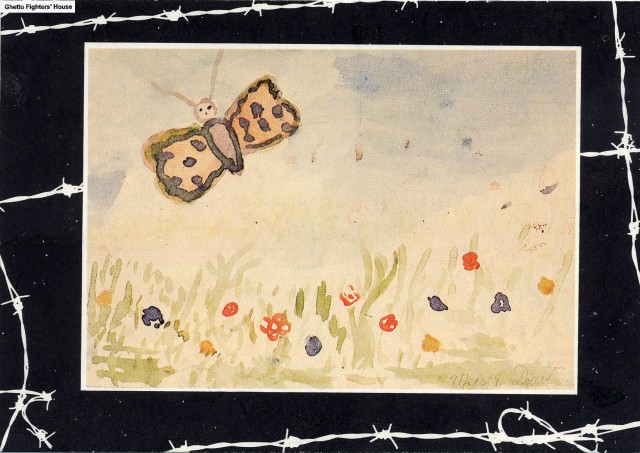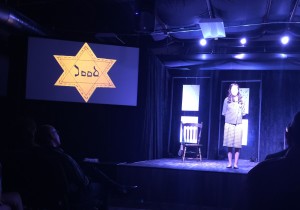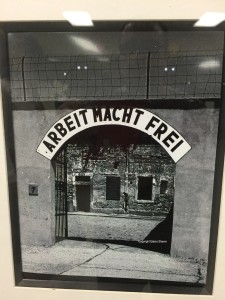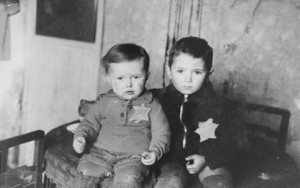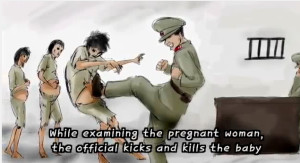Human Condition
noun
~the positive and negative aspects of existence as a human being
Hello Friends:
Life has once again taken me away from my blog. We moved, I had broken my foot, etc., etc. You know how it is. I had been gone for so long that It felt a bit odd coming back to this place of pouring out to anyone who would care enough to read. I needed something to bring me back.
Tonight I found it.
We were just witness to an incredibly riveting play about children put on by children. Middle and High school kids to be exact. It was based on a book by called, I Never Saw Another Butterfly: Children’s Drawings and Poems from Terezin Concentration Camp by Hana Volavkova. The play is a one-act by Celeste Raspanti. It’s about a group of Jewish children ages 12-17 who were evacuated from their homes to a Jewish ghetto along with 15,000 other children. A total of about 144,000 Jews were sent there. Starvation, sickness, hunger and poor conditions took 33,000 of them while about 88,000 were exterminated at the camps, including Auschwitz. Terezine itself was a small fortress within that small town between Bohemia and Moravia.
At the entrance of many of the camps, like Terezine, was a sign that read “work makes you free” which according to the show’s director Elaina Shaver means “work makes you free”. Mrs. Shaver visited Auschwitz herself so the direction and influence of the play comes first hand. As she states, the sign is meant as a false hope to those who went there. It was meant to make them feel safe from the ravages of war. Let that sink in for a moment. They were told that it was meant to keep them safe.
The play centers around a young girl named Raja who was relocated to Terezine. One by one she lost her parents,brother and friends who perished at Auschwitz. The children she was with were permitted to put on plays even in the midst of their utter horror. She was one of 100 children that survived.
As I watched the images on the screen, I thought of my brown-eyed girl who, at 13, is around the age that these kids were when they were sent there. I cannot fathom her striving to survive after losing us. In a riveting scene, Raja cries out, “But Papa didn’t get his shoes!” He had been told to drop his clothes and shoes at his feet and march forward into what the play implied to be their final freedom. In that scene I imagined my daughter doing the same and it took every ounce of strength to hold back the tears.
When we left the play the one question my daughter had was, “Why didn’t anyone stop it?” We had to explain to her that back then there was no internet and no TV. It was much easier to conceal the horrors of the death camps.
Not so today.
 Today there are horrors happening all around the globe. There are North Korean concentration camps, Christians being slaughtered and of course, slavery.
Today there are horrors happening all around the globe. There are North Korean concentration camps, Christians being slaughtered and of course, slavery.
I cannot fathom us as parents being taken away from our daughter never to be seen again. Yet, it happened and continues to happen today.
My question to all of us this: Why do we turn a blind eye? Is it out of fear? In the age of Facebook where cowards hide behind a keyboard and slaughter each other with words without consequence I can somewhat understand that. But have we become that hard-hearted? When some clamor for the federalization of the police do we look back in history in an effort to understand what that means? Why are you really rioting? When we complain that there are too many people living on the planet is this what you’re really clamoring for? Is it lack of education? Lack of faith? Lack of conscience? Fear of backlash? There is no judgement in those questions because we all have different reasons and I honestly don’t mean it to come across that way. That’s the last thing I want. But the last song in the play encouraged us to do one thing in the midst of our fears.
Do not be silent.
And as Dietrich Bonhoeffer reminded us, “To not speak, is to speak.”
Thank you, Mrs. Shaver, for reminding us.
Chat soon!

